Health
Kim Kardashian says full-body MRI scans can be ‘life-saving,’ yet many experts remain skeptical
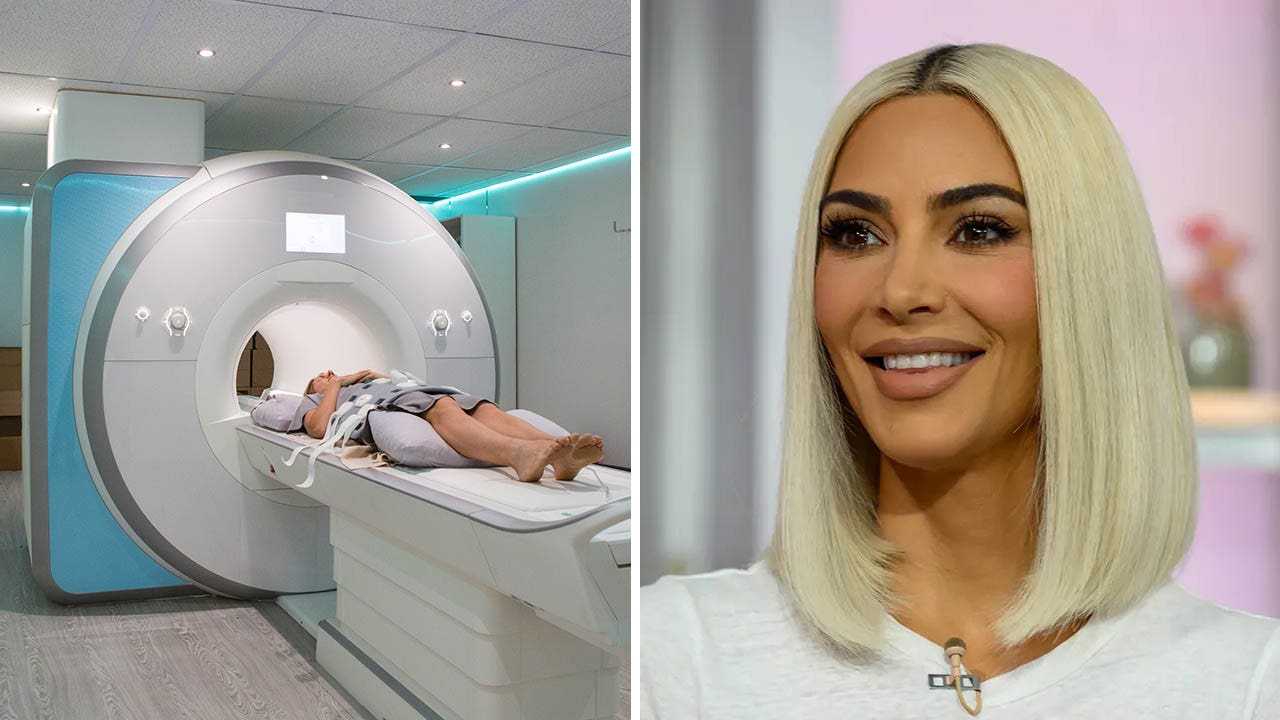
Reality star Kim Kardashian recently praised the wellness trend of undertaking whole-body magnetic resonance imaging (MRI) screening — saying these screenings save lives.
Many medical experts, however, share a larger context from their point of view and even some caveats when it comes to the health care benefits overall.
“I recently did this @prenuvo scan and had to tell you all about this life-saving machine,” the 42-year-old media personality recently wrote on Instagram.
“The Prenuvo full-body scan has the ability to detect cancer and diseases such as aneurysms in its earliest stages, before symptoms arise,” Kardashian also wrote.
AI TECHNOLOGY CATCHES CANCER BEFORE SYMPTOMS WITH EZRA, A FULL-BODY MRI SCANNER
“It has really saved some of my friends’ lives and I just wanted to share, #NotAnAd,” Kardashian wrote.
As a patient lies in a tube-shaped MRI machine, its powerful magnetic field and radio waves create computer-generated cross-sectional images of the inside of the body, similar to slices in a loaf of bread, according to the Mayo Clinic.
Kim Kardashian, reality star and media personality, is shown on the right; on the left, a patient prepares for an MRI. (iStock/Nathan Congleton/NBC/Getty Images)
The health conscious who can afford the expensive full body MRI scan find peace of mind knowing the most information available about the inside of their body, according to many accounts, especially since cancer is one of leading causes of death in the United States.
Regarding cost, Prenuvo, for its part, charges $999 to scan the chest, belly and pelvis; $1,799 to scan the head with the chest, belly and pelvis; and $2,499 for whole body scans, according to its website. The company says these scans can detect solid tumors, malignant cancers, potentially treatable brain aneurysms, spinal degeneration, previous strokes and musculoskeletal conditions.
Some experts, however, believe that more information is not always better.
Patients are advised to check with their health providers for insights or advice, depending on their own medical history. Charges vary depending on provider.
‘No scientific evidence’
A recent 2019 comprehensive review of 12 studies on whole-body MRI scans on people without any symptoms concluded that these scans lead to unnecessary testing because of the high rate of “false positive” results.
A “false positive” suggests cancer, but then upon further workup comes back as non-cancerous.
“There is a substantial risk of false-positives, which may have several negative downstream effects.”
“There is no scientific evidence that whole-body MRI screening is a beneficial and cost-effective method for screening healthy people,” Dr. Thomas Kwee, lead author of the study, told Fox Digital News.
“There is a substantial risk of false-positives, which may have several negative downstream effects, including subjecting healthy people to additional unnecessary (invasive) tests or even treatment, and increasing healthcare costs,” added Kwee, radiologist at the University Medical Center Groningen in the Netherlands, per an email.
NEW AI ‘CANCER CHATBOT’ PROVIDES PATIENTS AND FAMILIES WITH 24/7 SUPPORT: ‘EMPATHETIC APPROACH’
All screening tests, including those clinically indicated, have some inherent risk of “incidentalomas of indeterminate clinical significance” and “false positives,” Dr. Yosef Chodakiewitz, radiologist at Prenuvo based in Silicon Valley, told Fox News Digital.
Clinicians can balance these risks, so “in most cases, so-called ‘findings of indeterminate clinical significance’ can still be appropriately risk-stratified according to radiological-features, comparisons to prior imaging-studies, and clinical context/history,” the doctor added in an email.
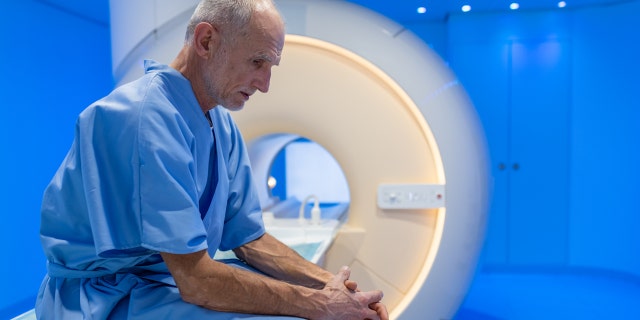
A patient is shown waiting to have an MRI. Some people are advocating for the pendulum to swing toward less body screening, not more. (iStock)
“In cases of diagnostically nonspecific but currently low-risk findings, such findings typically do not need any active investigation or additional testing, but rather can be reassessed as part of the next general screening [whole-body MRI] checkup,” he also said.
The American College of Radiology (ACR) notes there is no evidence that total body screening is either cost-effective or prolongs life, according to a statement.
The organization’s statement added that this screening may add a significant medical expense that’s not needed.
Screen for breast, cervical and colon cancer
Some are advocating for the pendulum to swing for less screening, not more.
Current evidence, for example, suggests the benefits of prostate cancer screening with a simple blood test known as a prostate specific antigen test, or PSA, often don’t outweigh the risks for most men.
WEARABLE DEVICE WITH AI COULD ALLOW FOR AT-HOME BREAST CANCER SCREENINGS: ‘ACCESSIBLE AND PERSONALIZED’
Since many factors can affect the PSA level, the current recommendation is for patients to have shared decision-making with their provider to see if getting screened is right for them.
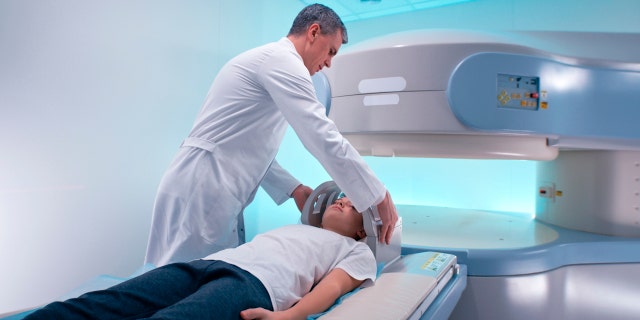
A medical practitioner is shown releasing a patient from an MRI machine. Only 14% of cancers diagnosed in the U.S. are first detected by a screening test, according to a recent report. (iStock)
The Centers of Disease Control and Prevention (CDC) and the U.S. Preventive Services Task Force (USPSTF) currently only recommend routine screening for a small number of cancers, namely breast and cervical cancer in women and colon cancer in both sexes — as well lung cancer for those who are high risk.
Screenings detect only a minority of cancers
Only 14% of cancers diagnosed in the U.S. are first detected by a screening test, according to a recent report by the nonprofit research organization NORC at the University of Chicago.
AI HEART SCAN AIMS TO CATCH BLOCKAGES YEARS BEFORE SYMPTOMS: ‘UNBELIEVABLE BREAKTHROUGH’
More people want to take charge of their health and not simply rely on the current screening guidelines for which many cancers are excluded.
“In our decade-long history in this uniquely specialized [whole-body MRI] screening practice, we have been able to find many early-stage cancers in patients that would not have been able to be detected by any other standardly available screening methodologies,” Chodakiewitz told Fox News Digital.
“It’s important for people to get the screenings they need to live longer and healthier lives.”
“Our view on the utility of cancer screening with [whole body MRI] is that it enables a highly efficient general evaluation that can look for cancer ‘everywhere and at everything under the skin’ to serve as the next best way to screen for cancer whenever a gold standard method does not yet exist or is not accessible,” Chodakiewitz added.
CLICK HERE TO SIGN UP FOR OUR HEALTH NEWSLETTER
“That’s still the case for most cancers.”
“It’s important for people to get the screenings they need to live longer and healthier lives,” Dr. Michael Barry, chair of the U.S. Services Preventive Task Force, told Fox News Digital in an email.
“We encourage people to focus on preventive services that are proven to keep people healthy,” he also said.

Health
Kennedy’s Plan for the Drug Crisis: A Network of ‘Healing Farms’

Though Mr. Kennedy’s embrace of recovery farms may be novel, the concept stretches back almost a century. In 1935, the government opened the United States Narcotic Farm in Lexington, Ky., to research and treat addiction. Over the years, residents included Chet Baker and William S. Burroughs (who portrayed the institution in his novel, “Junkie: Confessions of an Unredeemed Drug Addict”). The program had high relapse rates and was tainted by drug experiments on human subjects. By 1975, as local treatment centers began to proliferate around the country, the program closed.
In America, therapeutic communities for addiction treatment became popular in the 1960s and ’70s. Some, like Synanon, became notorious for cultlike, abusive environments. There are now perhaps 3,000 worldwide, researchers estimate, including one that Mr. Kennedy has also praised — San Patrignano, an Italian program whose centerpiece is a highly regarded bakery, staffed by residents.
“If we do go down the road of large government-funded therapeutic communities, I’d want to see some oversight to ensure they live up to modern standards,” said Dr. Sabet, who is now president of the Foundation for Drug Policy Solutions. “We should get rid of the false dichotomy, too, between these approaches and medications, since we know they can work together for some people.”
Should Mr. Kennedy be confirmed, his authority to establish healing farms would be uncertain. Building federal treatment farms in “depressed rural areas,” as he said in his documentary, presumably on public land, would hit political and legal roadblocks. Fully legalizing and taxing cannabis to pay for the farms would require congressional action.
In the concluding moments of the documentary, Mr. Kennedy invoked Carl Jung, the Swiss psychiatrist whose views on spirituality influenced Alcoholics Anonymous. Dr. Jung, he said, felt that “people who believed in God got better faster and that their recovery was more durable and enduring than people who didn’t.”
Health
Children exposed to higher fluoride levels found to have lower IQs, study reveals
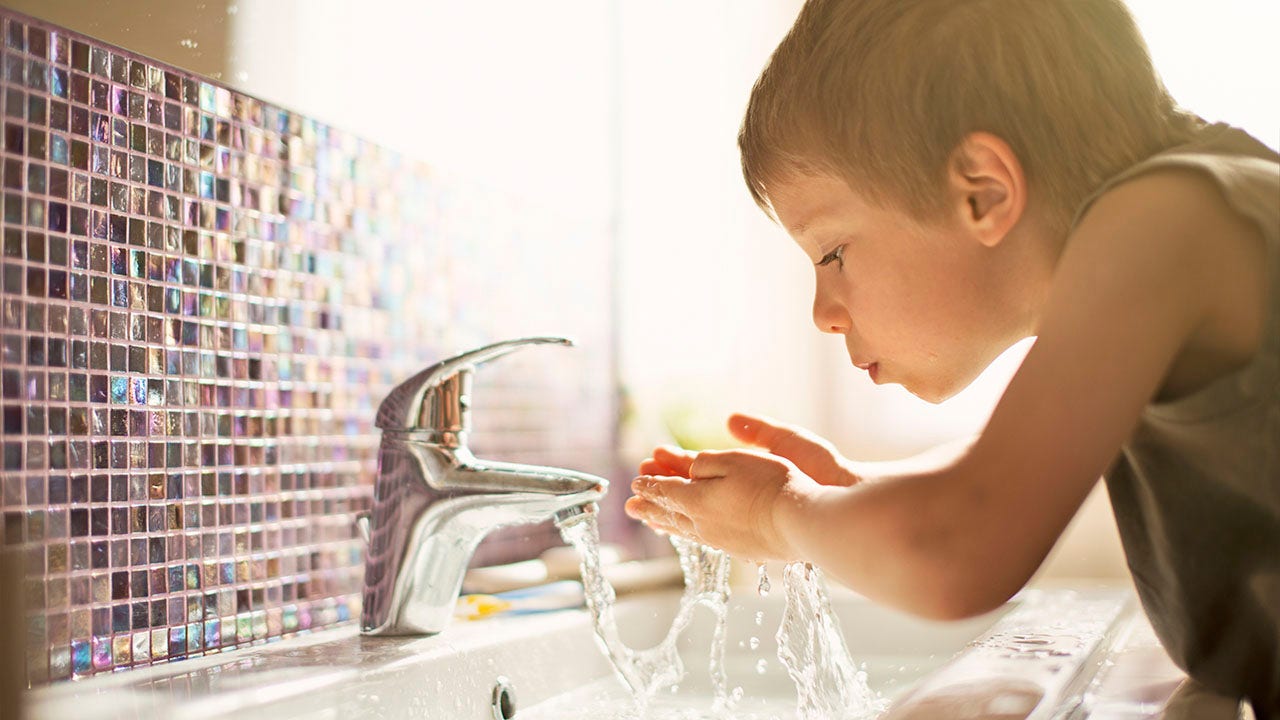
The debate about the benefits and risks of fluoride is ongoing, as RFK Jr. — incoming President Trump’s pick for HHS secretary — pushes to remove it from the U.S. water supply.
“Fluoride is an industrial waste associated with arthritis, bone fractures, bone cancer, IQ loss, neurodevelopmental disorders and thyroid disease,” RFK wrote in a post on X in November.
A new study published in JAMA Pediatrics on Jan. 6 found another correlation between fluoride exposure and children’s IQs.
RFK JR. CALLS FOR REMOVAL OF FLUORIDE FROM DRINKING WATER, SPARKING DEBATE
Study co-author Kyla Taylor, PhD, who is based in North Carolina, noted that fluoridated water has been used “for decades” to reduce dental cavities and improve oral health.
Fluoride exposure has been linked to a variety of negative health effects, yet benefits oral health. (iStock)
“However, there is concern that pregnant women and children are getting fluoride from many sources, including drinking water, water-added foods and beverages, teas, toothpaste, floss and mouthwash, and that their total fluoride exposure is too high and may affect fetal, infant and child neurodevelopment,” she told Fox News Digital.
The new research, led by scientists at the National Institute of Environmental Health Sciences (NIEHS), analyzed 74 epidemiological studies on children’s IQ and fluoride exposure.
FEDERAL JUDGE ORDERS EPA FURTHER REGULATE FLUORIDE IN DRINKING WATER DUE TO CONCERNS OVER LOWERED IQ IN KIDS
The studies measured fluoride in drinking water and urine across 10 countries, including Canada, China, Denmark, India, Iran, Mexico, Pakistan, New Zealand, Spain and Taiwan. (None were conducted in the U.S.)
The meta-analysis found a “statistically significant association” between higher fluoride exposure and lower children’s IQ scores, according to Taylor.
“[It showed] that the more fluoride a child is exposed to, the more likely that child’s IQ will be lower than if they were not exposed,” she said.
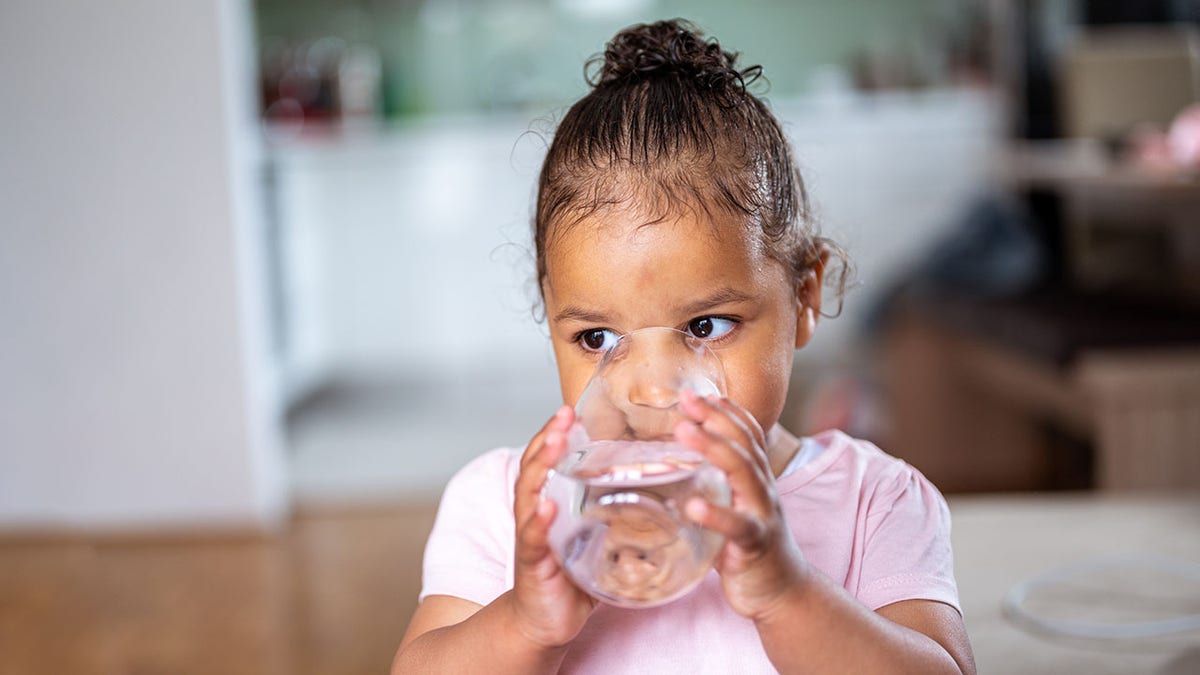
Scientists found a “statistically significant association” between higher fluoride exposure and lower children’s IQ scores. (iStock)
These results were consistent with six previous meta-analyses, all of which reported the same “statistically significant inverse associations” between fluoride exposure and children’s IQs, Taylor emphasized.
The research found that for every 1mg/L increase in urinary fluoride, there was a 1.63-point decrease in IQ.
‘Safe’ exposure levels
The World Health Organization (WHO) has established 1.5mg/L as the “upper safe limit” of fluoride in drinking water.
“There is concern that pregnant women and children are getting fluoride from many sources.”
Meanwhile, the U.S. Public Health Service recommends a fluoride concentration of 0.7 mg/L in drinking water.
“There was not enough data to determine if 0.7 mg/L of fluoride exposure in drinking water affected children’s IQs,” Taylor noted.
FDA BANS RED FOOD DYE DUE TO POTENTIAL CANCER RISK
Higher levels of the chemical can be found in wells and community water serving nearly three million people in the U.S., the researcher noted.
She encouraged pregnant women and parents of small children to be mindful of their total fluoride intake.
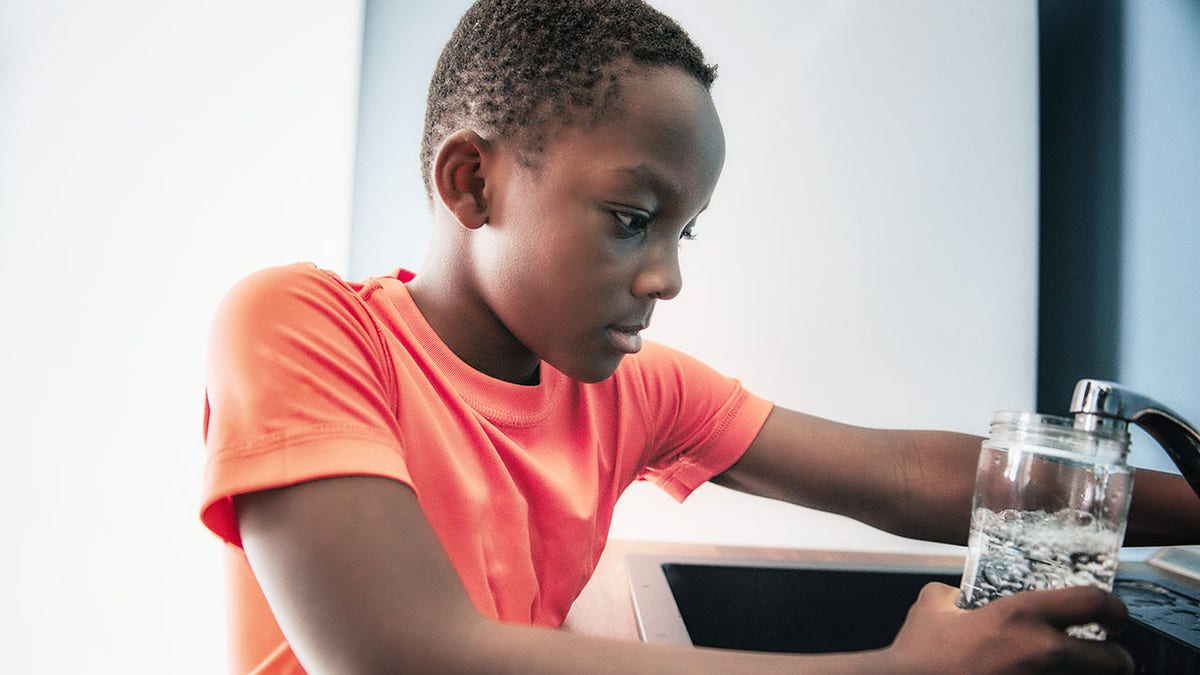
Nearly three million people have access to wells and community water with fluoride levels above the levels suggested by the World Health Organization. (iStock)
“If their water is fluoridated, they may wish to replace tap water with low-fluoride bottled water, like purified water, and limit exposure from other sources, such as dental products or black tea,” she said.
“Parents can use low-fluoride bottled water to mix with powdered infant formula and limit use of fluoridated toothpaste by young children.”
For more Health articles, visit www.foxnews.com/health.
While the research did not intend to address broader public health implications of water fluoridation in the U.S., Taylor suggested that the findings could help inform future research into the impact of fluoride on children’s health.
Dental health expert shares cautions
In response to this study and other previous research, Dr. Ellie Phillips, DDS, an oral health educator based in Austin, Texas, told Fox News Digital that she does not support water fluoridation.
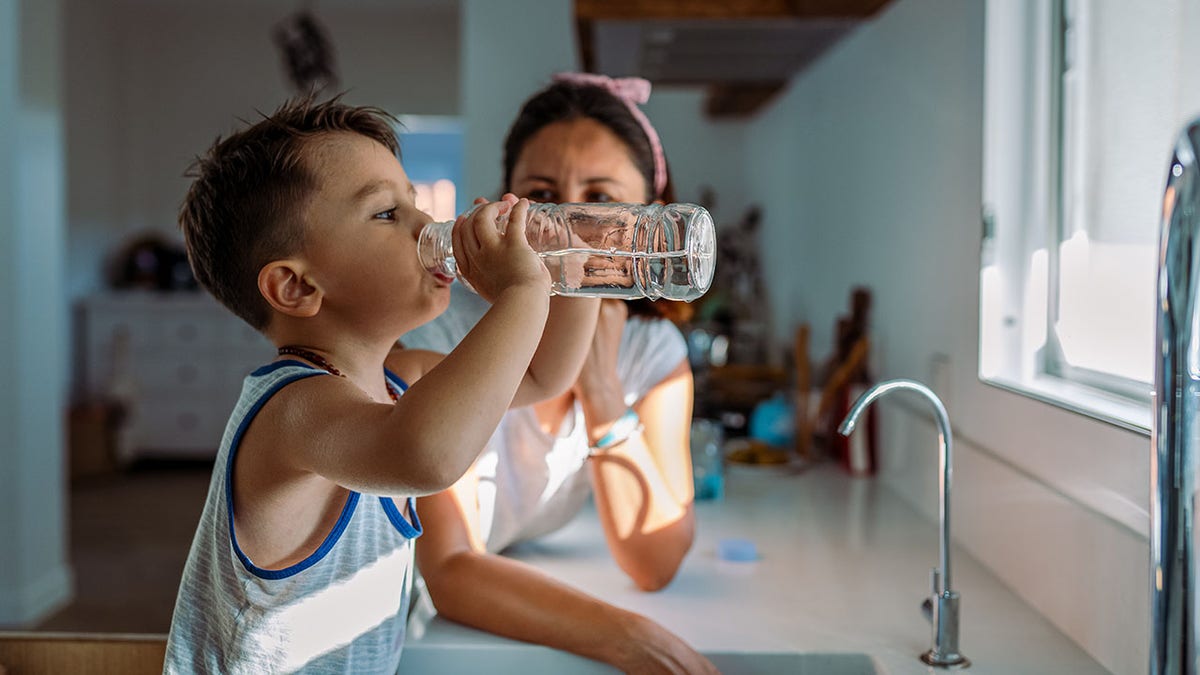
The study researcher encouraged parents of small children to be mindful of their total fluoride intake. (iStock)
“I join those who vehemently oppose public water fluoridation, and I question why our water supplies are still fluoridated in the 21st century,” she wrote in an email.
“There are non-fluoridated cities and countries where the public enjoy high levels of oral health, which in some cases appear better than those that are fluoridated.”
CLICK HERE TO SIGN UP FOR OUR HEALTH NEWSLETTER
Phillips called the fluoride debate “confusing” even among dentists, as the American Dental Association (ADA) advocates for fluoride use for cavity prevention through water fluoridation, toothpaste and mouthwash — “sometimes in high concentrations.”
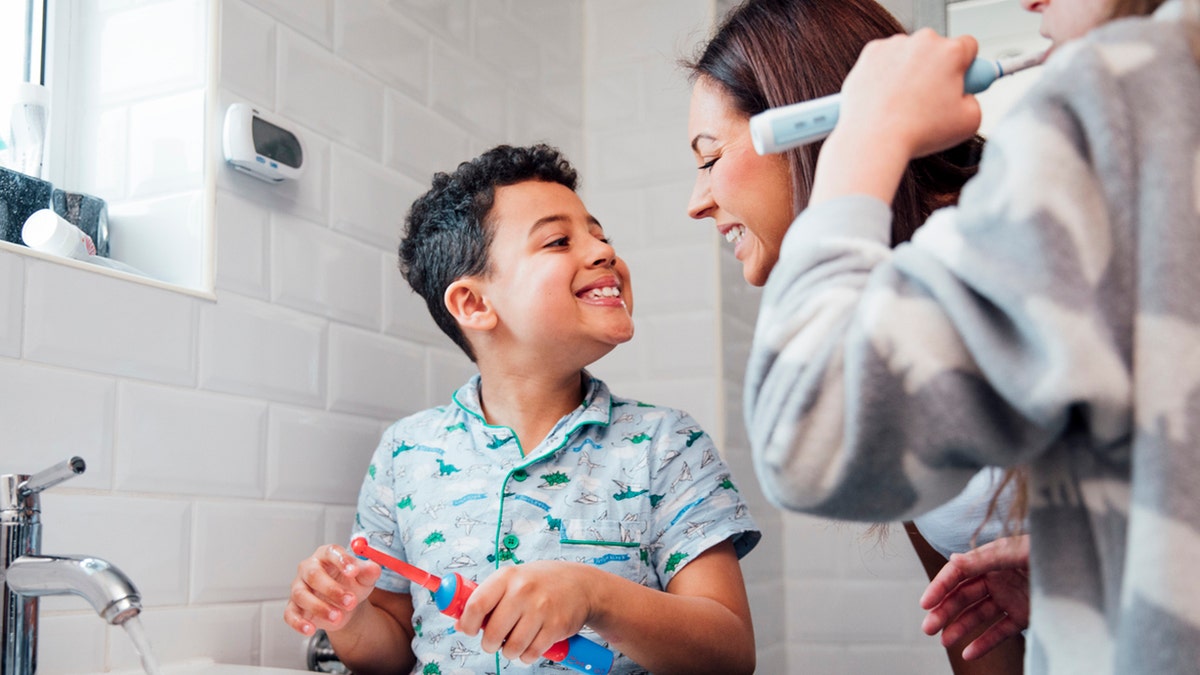
Fluoride is used in water, toothpaste and mouthwash to help prevent cavities. (iStock)
“[But] biologic (holistic) dentists generally encourage their patients to fear fluoride and avoid its use entirely, even if their teeth are ravaged by tooth decay,” she said.
“Topical fluoride is beneficial, while systemic consumption poses risks.”
Phillips encouraged the public to consider varying fluoride compounds, the effect of different concentrations and the “extreme difference” between applying fluoride topically and ingesting it.
“Topical fluoride is beneficial, while systemic consumption poses risks,” she cautioned.
“Individuals must take charge of their own oral health using natural and informed strategies.”
The study received funding from the National Institute of Environmental Health Sciences (NIEHS), the National Institutes of Health (NIH) and the Intramural Research Program.
Health
Treating Other Diseases With Ozempic? Experts Weigh In | Woman's World

Sign Up
Create a free account to access exclusive content, play games, solve puzzles, test your pop-culture knowledge and receive special offers.
Already have an account? Login
Use left and right arrow keys to navigate between menu items.
Use escape to exit the menu.
-
/cdn.vox-cdn.com/uploads/chorus_asset/file/25822586/STK169_ZUCKERBERG_MAGA_STKS491_CVIRGINIA_A.jpg)
/cdn.vox-cdn.com/uploads/chorus_asset/file/25822586/STK169_ZUCKERBERG_MAGA_STKS491_CVIRGINIA_A.jpg) Technology1 week ago
Technology1 week agoMeta is highlighting a splintering global approach to online speech
-

 Science7 days ago
Science7 days agoMetro will offer free rides in L.A. through Sunday due to fires
-
/cdn.vox-cdn.com/uploads/chorus_asset/file/23935558/acastro_STK103__01.jpg)
/cdn.vox-cdn.com/uploads/chorus_asset/file/23935558/acastro_STK103__01.jpg) Technology7 days ago
Technology7 days agoAmazon Prime will shut down its clothing try-on program
-

 News1 week ago
News1 week agoMapping the Damage From the Palisades Fire
-

 News1 week ago
News1 week agoMourners Defy Subfreezing Temperatures to Honor Jimmy Carter at the Capitol
-
/cdn.vox-cdn.com/uploads/chorus_asset/file/25826211/lorealcellbioprint.jpg)
/cdn.vox-cdn.com/uploads/chorus_asset/file/25826211/lorealcellbioprint.jpg) Technology6 days ago
Technology6 days agoL’Oréal’s new skincare gadget told me I should try retinol
-
/cdn.vox-cdn.com/uploads/chorus_asset/file/25832751/2192581677.jpg)
/cdn.vox-cdn.com/uploads/chorus_asset/file/25832751/2192581677.jpg) Technology3 days ago
Technology3 days agoSuper Bowl LIX will stream for free on Tubi
-

 Business4 days ago
Business4 days agoWhy TikTok Users Are Downloading ‘Red Note,’ the Chinese App















